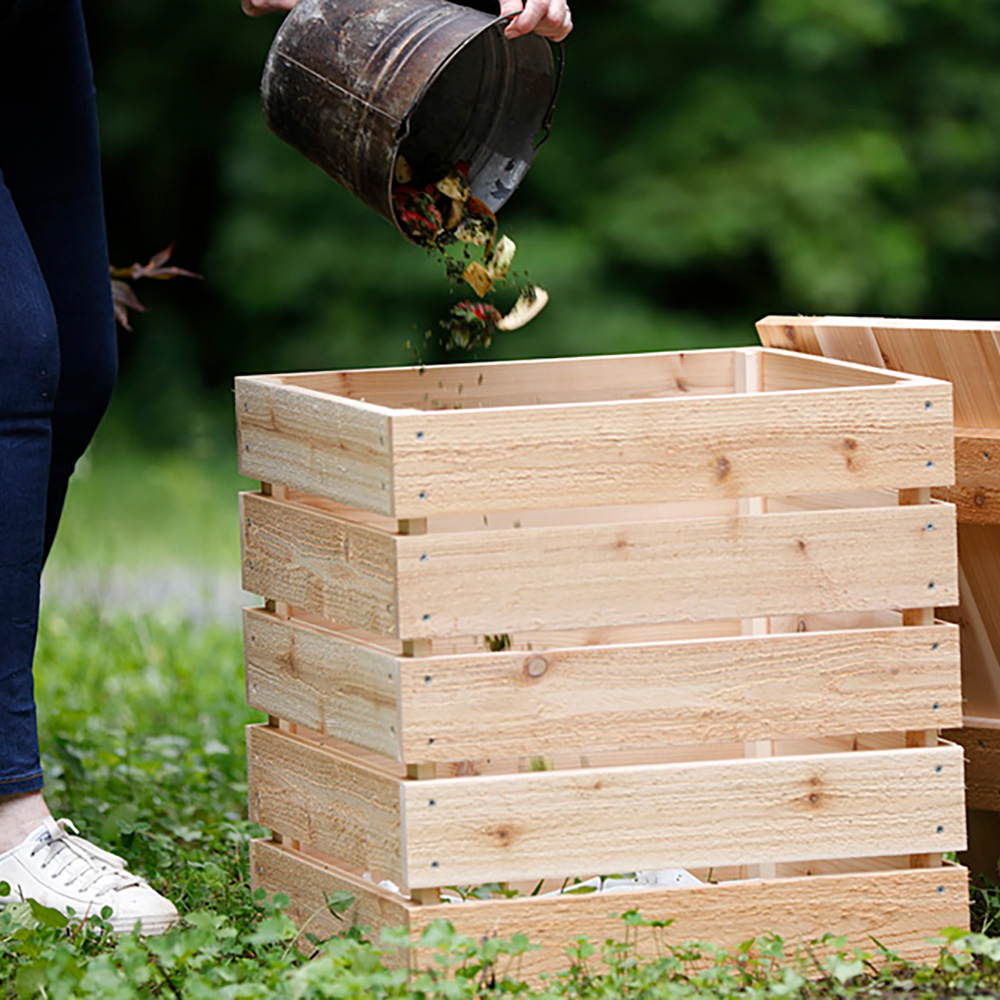Introduction
Building a compost bin at home is easy. It helps reduce waste and enriches your garden soil. Follow these steps to create your own compost bin.
Materials Needed
- Wooden pallets or boards
- Nails or screws
- A hammer or a drill
- Wire mesh or hardware cloth
- Hinges and a latch (optional)

Credit: www.homedepot.com
Step-by-Step Guide
Step 1: Choose A Location
Select a flat, well-drained area in your yard. The spot should get some sunlight.
Step 2: Gather Your Materials
Collect all the materials listed above. Make sure you have enough to build a sturdy bin.
Step 3: Construct The Base
Place the wooden pallets or boards on the ground to form a square. This is the base of your bin.
Step 4: Build The Sides
Attach the pallets or boards vertically to the base. Use nails or screws to secure them. Leave one side open for easy access.
Step 5: Add A Door (optional)
Attach hinges to the open side. Use a latch to secure the door. This makes it easy to add compost materials.
Step 6: Install Wire Mesh
Cover the sides and bottom with wire mesh. This allows air flow and keeps pests out.
Step 7: Start Composting
Add kitchen scraps and yard waste to your bin. Turn the compost regularly to speed up the process.
What to Compost
| Compostable Items | Non-Compostable Items |
|---|---|
| Fruit and vegetable scraps | Meat and dairy products |
| Coffee grounds and filters | Oils and fats |
| Eggshells | Plastic and glass |
| Grass clippings and leaves | Pet waste |
| Paper and cardboard | Diseased plants |
Benefits of Composting
- Reduces kitchen and yard waste
- Enriches soil with nutrients
- Helps retain soil moisture
- Reduces the need for chemical fertilizers
- Supports beneficial organisms in the soil
:max_bytes(150000):strip_icc()/practicallyfunctional-696f8ba14d0d42a8930fb8c25c4cc9e8.jpg)
Credit: www.thespruce.com
Common Composting Problems and Solutions
Problem 1: Bad Odor
If your compost smells bad, it might be too wet. Add dry materials like leaves or straw. Turn the compost to increase airflow.
Problem 2: Pests
Pests can be attracted to your compost bin. Avoid adding meat or dairy products. Use a bin with a lid and wire mesh to keep pests out.
Problem 3: Compost Not Breaking Down
If your compost is not breaking down, it might need more air or moisture. Turn it regularly and add water if it’s too dry.
Frequently Asked Questions
What Materials Do I Need For A Compost Bin?
You’ll need wood, nails, a hammer, and a saw.
How Do I Start Composting At Home?
Start by layering green and brown materials in your bin.
Can I Compost Kitchen Scraps?
Yes, kitchen scraps like vegetable peels are great for composting.
How Often Should I Turn The Compost?
Turn the compost every 2-4 weeks for optimal results.
Conclusion
Building a compost bin at home is simple and rewarding. Follow these steps to create your own bin. Enjoy the benefits of rich, nutrient-filled soil for your garden. Happy composting!
